I will be writing a report on my trip to the south of Lebanon over the next few days. I do cover it in my UK Column reports. Here are a few of the photos taken in Khiam:

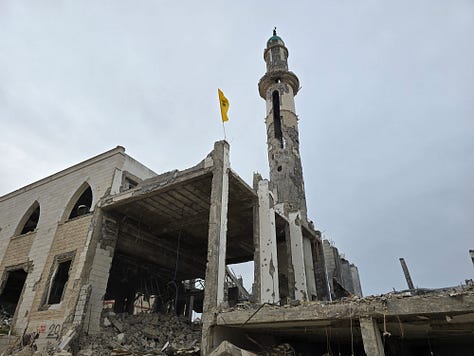
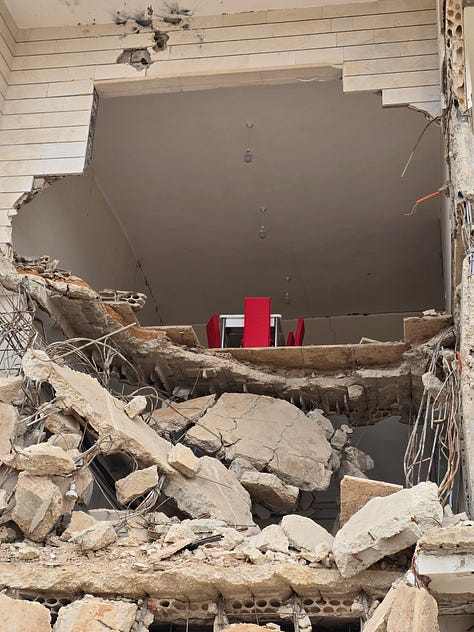
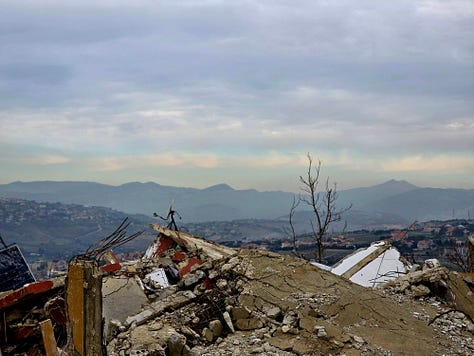
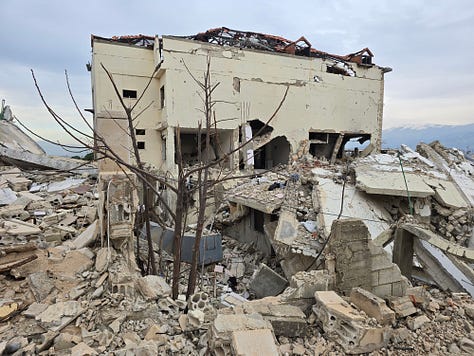
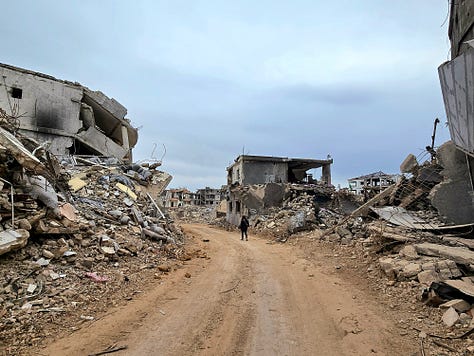
You can watch the news at UK Column webpage on Monday, Wednesday and Friday 1pm UK time.
I recommend reading this earlier report from Lebanese journalist Myriam Charabaty who also accompanied me on Monday:
On January 26, 2025, the people of southern Lebanon, the people of Jabal Amel, marched toward their Israeli-occupied border towns after the 60-day period agreed upon by the Lebanese government as part of a ceasefire agreement had expired.
Hundreds of residents returned to their towns, joined by compatriots from the Beqaa Valley, the two central hubs of Hezbollah’s Islamic Resistance community. They marched despite the continued presence of Israeli occupation forces, who barred them from entering their own lands. United with the Lebanese Army—and in many cases, even leading the way—the people stormed their villages and forced the occupiers to retreat. Yet, even today, some villages remain under occupation, a blatant violation of the agreement and a grave aggression against the people, the land, and the will of the martyrs who ascended during battles in which the enemy failed to seize these very towns.
During this time, Christian regions were systematically isolated from the pride of liberation. While history has shown that the enemy never retreats without force and never honors agreements, the people of these towns were urged to remain calm and let diplomacy take its course. But 60 days had already passed—60 days in which diplomacy and agreements should have been resolved. These people had a right to return. They were not armed aggressors; they were civilians and residents reclaiming their homes. (And even if they had been armed, it would have been their right in the face of a genocidal occupation.)
After two days of continuous tensions in Jabal Amel and a glaring lack of action from Christian political parties or leadership in defense of the people, the land, and the honor of those who had ascended during the two-month war on Lebanon—and the year-long support front launched in defense of humanity and the Palestinian Resistance—my friend and I decided to take matters into our own hands and journey south.
Our decision to participate in what was dubbed the Third March of Liberation for our people in Jabal Amel was not a fleeting act of solidarity, nor was it a narrow ideological stance confined to partisan, sectarian, or identity-based considerations. Rather, it was a profound commitment to a historical path that unites the free across all times and places in the struggle against oppression, occupation, colonialism, and domination.
At this critical juncture, when the resistance community faced blatant abandonment by Christian political parties and movements—where short-sighted political interests and opportunism overshadowed the moral imperative and strategic necessity of an existential war—we found ourselves at a crossroads. The choice was stark: remain silent and complicit in this betrayal, or take a stand, even on a personal level, in defense of a cause we deeply believed in.
For us, resistance is not merely a political stance; it is an existential necessity to safeguard our heritage, land, and dignity. It is about honoring the sacrifices of martyrs and ensuring the survival of our nation—its legacy, history, present, and future—regardless of religious or ethnic background. It is a call to uphold the values of justice, freedom, and humanity in the face of tyranny and oppression.
This was not just a march; it was a declaration of our unwavering commitment to the path of resistance, to the land, and to the people who have given everything for its liberation. It was a reminder that the struggle for freedom is not bound by sect or party but is a collective responsibility shared by all who believe in justice and dignity.
Continue reading here.
****
Please do consider subscribing to my Substack and thank you to everyone who already does. xxx

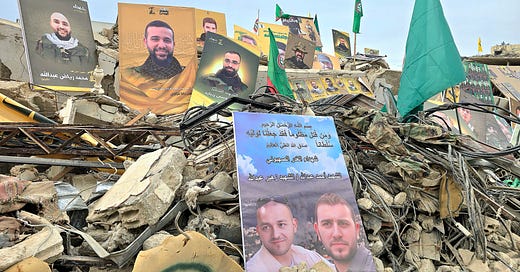











Share this post